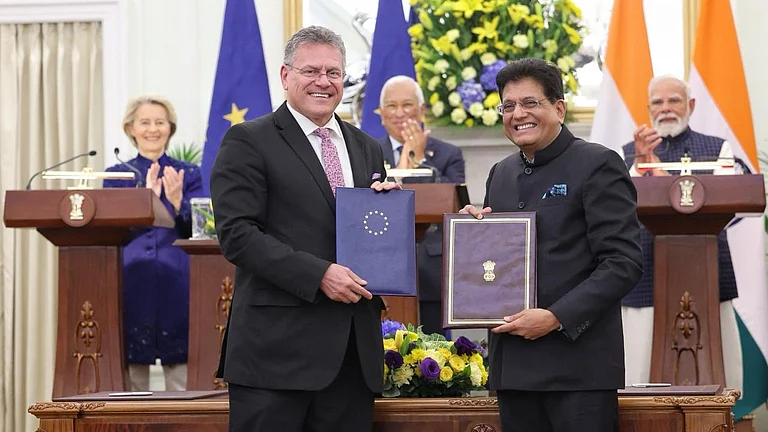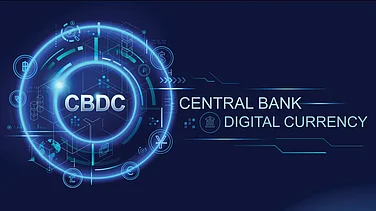As the world faces unprecedented challenges, governments across the globe are under pressure to achieve Sustainable Development Goals (SDGs).
From climate action to eradicating poverty, these goals are not just aspirations but urgent necessities. Policymakers are increasingly turning to technology-driven solutions to address systemic issues in healthcare, education, governance, and more. These initiatives are global in scope, and while India is a pivotal player, the challenges—and opportunities—extend far beyond its borders.
A Global Imperative: Technology for Good
The urgency around sustainability is driving a new wave of innovations designed to create meaningful impact on a mass scale. Digital healthcare platforms, for example, have revolutionised how people, particularly in remote and underserved regions, access medical services. In countries like Kenya, the mobile health platform M-TIBA has enabled millions of people to save and pay for healthcare digitally, while ensuring access to essential medical services. Similarly, telemedicine in rural India has reduced mortality rates by providing timely medical consultations, powered by AI and machine learning, to diagnose diseases even in areas with limited healthcare infrastructure.
Governments worldwide are adopting AI-powered governance tools to improve transparency and accountability. Estonia's e-Residency programme is a prime example of how digital identity solutions can foster inclusive digital governance, offering global citizens access to services typically reserved for residents. Closer to home, India’s Aadhaar system, the world’s largest biometric ID programme, has expanded access to public services and reduced corruption by ensuring that benefits reach those in need directly.
Instilling confidence into the Next Half Billion People
As technology deepens its reach into underserved populations, building digital, financial, and communicative confidence is critical. While the developmental sector has focused for decades on literacy and access, the next wave of innovation must address confidence—empowering individuals to not just access the internet, but to use it to transform their lives. For example, AI tools for vernacular content can break language barriers, enabling millions of non-English-speaking users to engage with online platforms in a way that feels natural and intuitive. By making technology culturally relevant and accessible, we create opportunities for users to take ownership of their digital experiences and utilise them for social and economic mobility.
Varying socio-economic statuses among the Next Half Billion (NHB) must also be factored into this equation. These populations—comprised of small business owners, farmers, and gig workers—have largely been left out of the traditional VC-backed innovation ecosystem, which often caters to the top 10 percent of the population. However, this segment is not only vulnerable to the impacts of climate change but also holds tremendous potential to adopt and benefit from climate-resilient technologies. Solutions such as solar-powered water pumps, low-cost healthcare devices, and agri-tech platforms are already helping farmers and rural entrepreneurs mitigate climate risks while improving productivity and income.
Tech for Climate Resilience
The NHB is disproportionately affected by climate change and natural disasters, with limited resources to cope. Innovations in clean energy and climate resilience are not only essential but urgent. For example, Green Growth AI in India has developed AI-powered tools that optimise energy consumption in farming, directly benefiting low-income farmers who are vulnerable to erratic weather patterns. Globally, the Netherlands has pioneered the use of AI in water management, employing predictive models to manage floods more effectively—a solution that could have far-reaching applications in flood-prone areas like South Asia.
The Path Forward: Expanding Impact Investments
The global impact investing market has reached over $1 trillion, reflecting a growing recognition that sustainable business models can be profitable. However, to realise the full potential of technology for good, we must reallocate more capital towards innovations that serve the underserved. At Impact Labs, we are committed to identifying and nurturing startups that are creating scalable solutions for the Next Half Billion. By investing in tech-enabled social enterprises focused on climate resilience, digital healthcare, and inclusive governance, we are supporting a new generation of businesses that do more than just create products—they drive systemic change.
Our work with early-stage ventures in sectors such as assistive technology, fintech, and sustainable agriculture is already making a difference, but there is much more to do. With more government pressure to meet SDGs and the rise of AI-driven tools for social impact, the time to act is now. By fostering partnerships between policymakers, investors, and innovators, we can ensure that the benefits of these technologies reach those who need them most.
A Call to Action: Join the Movement
The challenges we face today—inequality, climate change, and health crises—are not confined to borders. Global collaboration is needed to scale innovations that address the most pressing problems of our time. At Impact Labs, we believe in the power of impact-driven investments to not only solve these issues but to create a future where technology serves everyone, not just the privileged few.
We invite investors, policymakers, and entrepreneurs to join us on this journey. Together, we can harness the power of innovation to build a more inclusive, resilient, and sustainable future for all.
(Munish Bhatia, co-founder of India Accelerator.)


























